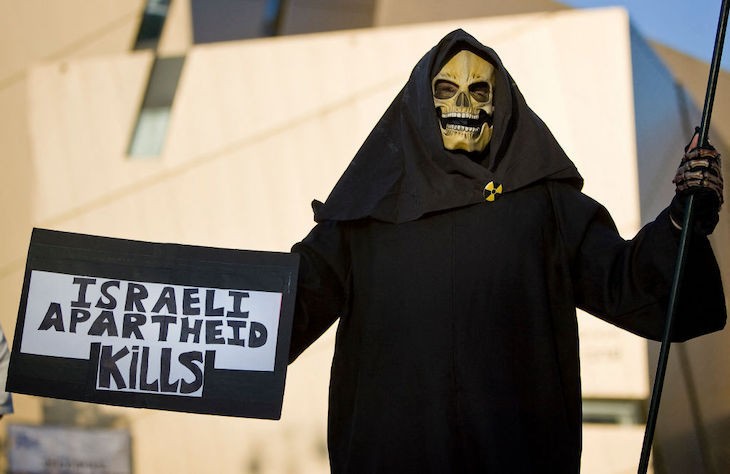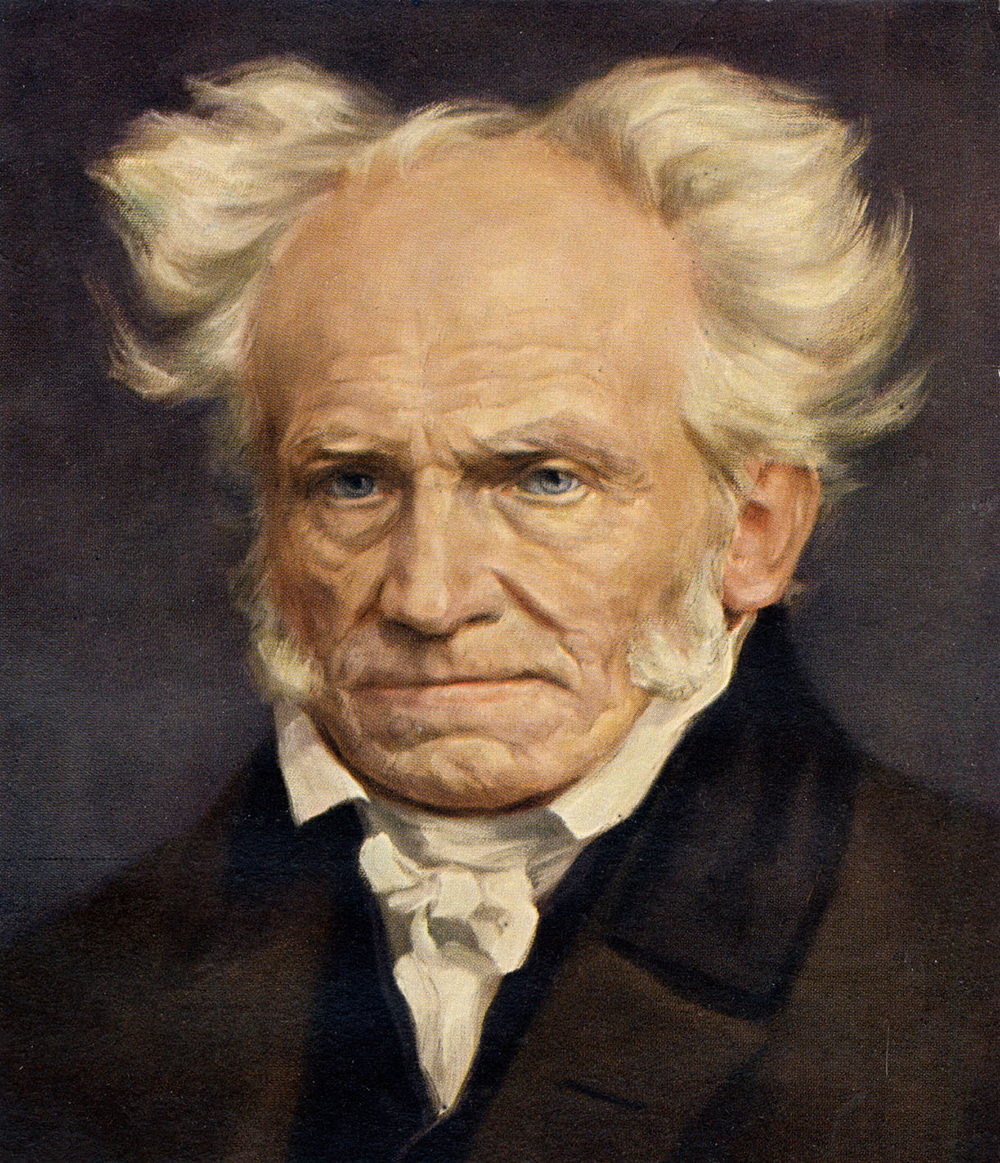Israel’s critics want you to acknowledge its uniqueness as the only country to enjoy the triple distinction of being a colonial, genocidal, and an apartheid state. Whether Israel is, or was, colonial I leave to the historians and political scientists. The question of genocide will eventually be decided by the International Court of Justice. In respect of the third transgression, however, as someone born and bred in apartheid South Africa, I may be able to shed some light, and expose the deficiencies of this increasingly pervasive analogy.
The reckless invective that labels Israel an ‘apartheid state’ is a grotesque injustice
Israel is far from a paragon of virtue. But the sort of reckless invective that labels Israel an ‘apartheid state’ is a grotesque injustice – and an affront to those who suffered the long years of discrimination and persecution in South Africa.
Apartheid in South Africa, it is frequently forgotten – or conveniently overlooked – was not merely racial segregation. It was an elaborate project sustained by an inflexible ideology enforced by an authoritarian regime, buttressed by draconian legislation. It relied on an unaccountable security force with sweeping powers, a mostly supportive legislature, and a generally pliant judiciary.
South Africa’s legal system under apartheid was the creation of a white minority; the political system disenfranchised every ‘non-white’ person, and the law discriminated against them in almost every facet of social and economic life: employment, land, housing, education, sex, and freedom of movement.
Deaths in detention and the use of torture were systemic. Surveillance, intimidation, and police brutality were routine. Apartheid South Africa was the archetypal modern police state. The Broederbond, a secret, Calvinist, all-male society fostered Afrikaner interests. The South African statesman Jan Smuts described it as a ‘dangerous, cunning, political fascist organisation’. The neo-Nazi nature of this totalitarian order was one of its essential constituents.
The expansive definition of South Africa’s Suppression of Communism Act of 1950, under which Nelson Mandela was sentenced to life in prison, was equalled by the Terrorism Act of 1967 which defined ‘terrorism’ as including anything that might ‘endanger the maintenance of law and order’. Life sentences in South Africa were exactly that. And the gallows were kept busy: between 1910 and 1975, 2,740 executions were carried out; another 1,100 met their end between 1981 and 1989 when the struggle against apartheid was at its peak – an average of 50 a year over 80 years.
The overwhelming majority of those put to death were black; many were political prisoners. At the end of July 1989, for example, 283 prisoners were being held on death row at Pretoria Central Prison. Of these, 272 were black. In March 1988, 53 individuals were hanged for politically related crimes.
In 1973, the United Nations sought to crystallise the quintessence of apartheid by establishing it as a crime. According to the Apartheid Convention, the offence consists of inhuman acts committed for the purpose of maintaining domination by one racial group over any other, and systematically oppressing them.
The authors of the Convention, in pursuit of greater precision, provided a catalogue of the acts embraced by the crime, including murder, torture, inhuman treatment and arbitrary arrest of members of a racial group. It also encompassed legislation that discriminates in the political, social, economic and cultural fields, separate residential areas for racial groups, the prohibition of interracial marriages, and the persecution of opponents of apartheid.
The text captures the rudiments of apartheid as applied in South Africa – even though it drains it of much of the system’s malevolence and totalitarianism touched on above. And, despite the demise of apartheid in 1994, the offence lives on. Thus, in 1998, the Rome Statute of the International Criminal Court included apartheid, along with a catalogue of other wrongs such as murder, extermination, enslavement, and torture, as a crime against humanity.
Notwithstanding the terms of the Apartheid Convention, and its explicit description of the South African conditions, apartheid may exist anywhere. This factor has engendered the preposterous assertion that Israel is an ‘apartheid state’. But there is little substance to the comparison.
Where are the ‘inhumane acts…of an institutionalised regime of systematic oppression and domination’ by one race over another, as specified in the Rome Statute? Unlike blacks under apartheid, Israeli Arabs are enfranchised, are elected to the Knesset, and serve in the judiciary. They have the freedom to attend any hospital, school, or university. They are not denied access to beaches, cinemas, theatres, libraries, or sporting facilities. They may choose whom to love.
Israeli Arabs are enfranchised, are elected to the Knesset, and serve in the judiciary
Even Richard Goldstone, the former South African judge who headed the censorious inquiry into Israel’s 2009 ‘Cast Lead’ operation in Gaza, conceded that in Israel ‘there is no apartheid. Nothing there comes close to the definition of apartheid under the 1998 Rome Statute’.
Combating terrorism and maintaining security unavoidably exact a high price. It cannot be denied that many Palestinians encounter hardship, privation, and indignity, especially since the war on Hamas in the wake of its barbaric attack on Israel on 7 October 2023. But one might ask: where is the sympathy and compassion for those who live in squalid camps in various Arab countries?
In Lebanon, more than 400,000 Palestinian refugees survive in appalling social and economic conditions, many in overcrowded camps without essential utilities. They are effectively stateless. In 2001, the Lebanese parliament enacted legislation targeting Palestinians, prohibiting them from owning property. The law also restricts their ability to work in several areas. While a ban on Palestinians holding most clerical and technical positions was terminated – provided they obtained temporary work permits – more than 20 high-level professions are denied to Palestinians. Moreover, Palestinians are not eligible for social security benefits. They are also subject to discrimination in respect of housing, property ownership, inheritance rights, and freedom of movement and residence.
Where is the expression of outrage at these measures? Is Lebanon not an ‘apartheid state’? What about the discrimination of the now-toppled Syrian regime against Sunnis and Christians? Or its gulag of extermination camps in which thousands of political opponents were executed and tortured?
Is Lebanon not an ‘apartheid state’?
Whatever traction its advocates seek to gain from the South African archetype, the argument actually undermines the Palestinian cause. If there is injustice, let us call it by its name. Simplistic sloganeering is unhelpful. There are enough examples of egregious attempts at genocide around the world, but they are usually confined to a single nation and spring from internecine tribal or religious divisions. The ‘final solution’ – the wholesale extermination of the Jews (not merely in one country, but across all of Europe) – stands alone as a paradigm of inhumanity and iniquity.
It is no answer to assert that these usages are merely metaphorical. Metaphor often enriches language. But it may also debase. The capricious abuse of ‘genocide’, ‘apartheid’, ‘and ‘colonialism’ has lamentably become commonplace. Factual and linguistic precision is more likely to generate solutions to complex political problems than reckless rhetoric which, despite its appeal to the demagogue, has no place in the quest for peace and justice.
The manifold reverberations of these events include a relentless international crusade against Israel in numerous countries. ‘Pro-Palestinian’ campaigns, demonstrations, protest marches, campus intimidation, boycotts, and arms embargoes, are merely some of the measures deployed in this endeavour to convert the Jewish State into a pariah. More sinister and disquieting is the rise of anti-Semitism which frequently parades as anti-Zionism. Some of it is hard to distinguish from the pogroms of the last century, or the calumnies against Jews of antiquity and the Middle Ages.
The perverted values of the campaign against Israel frequently rest on an unsavoury blend of ignorance, mendacity and hypocrisy. Whatever the alleged crimes of Israel’s military, or the provocative violence of extremist settlers, it is reprehensible that the scourge of anti-Semitism should resurface in the guise of defending human virtue. This malevolence portends dark days ahead that imperil justice and security everywhere.







Comments